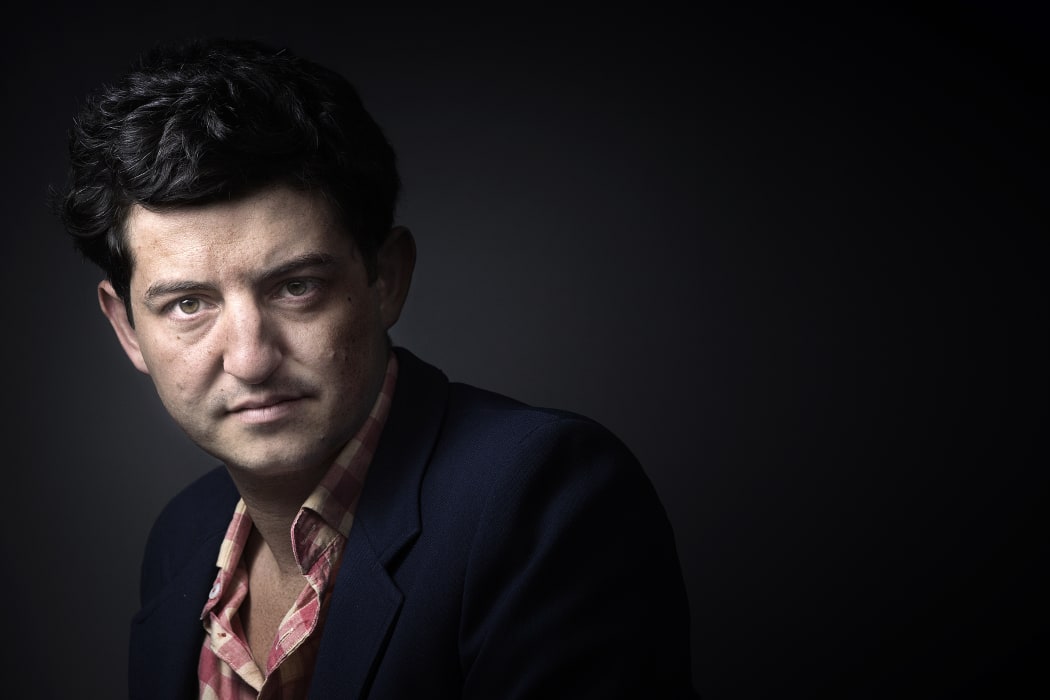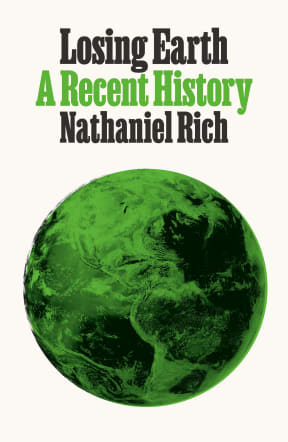Thirty years ago, we had the chance to halt, or at least slow down, climate change.
Almost everything we know today about climate change - the potential for extreme weather, the threat to wildlife - we knew back in 1979.
A small group of scientists tried to convince the world to act. But the fossil fuel industry and politicians did everything they could to push climate change denial.

Nathaniel Rich Photo: AFP / FILE
New York Times journalist Nathaniel Rich tells the story of how unlikely heroes risked everything to warn us about climate change. His new book is called Losing Earth: A Recent History.
Politics triumphed over science in the decade from 1979-89.
“There’s nothing that we’re talking about now that wasn’t being discussed then.”
There was a ten-year effort, originally from a small group of people, to try to move the issue into policy, says Rich.
“They came pretty close at the end of the decade, despite some retreats along the way, they were on the brink of formalising an agreement to reduce carbon admissions, a global binding agreement and at the last minute, the US delegation withdrew from that whole framework and we haven’t really been as close since.”
In the 80s, before denial, climate change wasn’t a partisan issue.
“It took the mechanism of the first climate denialist really, John Sununu, a high-level official for the White House of George H W Bush, to undo the effort to bring about a solution. Until that moment, there weren’t really two sides of the story.”
Rich writes about the difficulties early activists and scientists faced, before there was even anyone pushing back, as a way to ask questions such as how does this issue impact our identity as people and as a civilisation?
Rafe Pomerance started out the decade as a political activist and environmentalist in Capital Hill in the 1980s, Rich says.
“He had the same response that I think most of us had when we try to confront the reality of the problem, which is to say he disbelieves it and he thinks well surely, if the problem is this severe, there must be some powerful people in Washington trying to solve it and he soon learns that nobody is.”
He takes it upon himself to inform everyone, first in Washington and then in the public sphere.
“Finally, by the end of the decade he’s resorted to a kind of moral shaming and outrage and that makes some progress but it’s still not enough.”
James Hanson was someone who reluctantly testified before Congress, becoming the go-to scientist on the topic of climate change.
“There’s some divide in the scientific community about how outspoken scientists should be in terms of public policy ramifications of his or her work, but in the early '80s it was unheard of for the most part... Hanson understood right away, he was an atmospheric scientist who was doing some of the leading research on climate models, essentially these future prediction machines that were telling him that things were getting bad faster than people had realised.”
He understood what needed to be done – that we needed to stop burning coal and phase out fossil fuel industries.
“He was able to put aside any professional concerns and it cost him deeply, it cost him professionally… and it cost him personally.”
Hanson lost his entire funding during the Reagan years, says Rich.
“Reagan had a horrible environmental record and did a lot of devastating things especially to regulation in the US, but by the end of his second term even the head of his environmental protection agency pledged to take up carbon dioxide in the global treaty process.”

Photo: Supplied
George H W Bush on the other hand, used climate change as a campaign issue in 1988.
“He says ‘those who think we can’t solve the greenhouse effect haven’t heard about the White House effect and in the White House, we will do it’. He continued to talk like that through the election and even at the beginning of his term.”
After Hanson testified in 1988 and it became a major national issue, congress introduced 32 climate bills, industry took notice and began to show concern, asking its policy division to formulate a position.
“There are high level meetings at the American Petroleum Institute, the big trade group of the institute, at Exon, the biggest oil and gas company, and they essentially reach the same conclusions, which is to say ‘we need to participate in any regulatory policy discussions, we need to make sure to emphasise any uncertainty in the science…’ and that they needed to endorse any policy that would not affect the bottom line.”
These policies to discredit the science ultimately began to drift into the delirium of climate denialism we see now, says Rich.
“They didn’t expect the public relations strategy to work as well as it did and so what happened in 1989 is you start to see the first articles in the US press, national press, saying well maybe this is overblown and they start to interview the same three or four scientists who have been found by the industry to talk to reporters to make their arguments – paying them in some cases.”
All of a sudden, an issue that had one side now has two sides, he says.
The industry realised that not only was this PR effort the most successful strategy, it was the cheapest.
“And over the years they start to move all of their chips over into that pile or at least heavily increasing the resources they devote to it and at the same time they keep pushing the rhetorical line of what they’re able to get away with.”
In 1989 the US was in an unrivalled position of geopolitical power after the fall of the Soviet Union and uniquely able to compel other countries to fall in line, says Rich.
Enforcement is still a big issue to this day, and if there’s no mechanism in place then we’re relying on ourselves, he says.
The best-case scenario is that we take action, he says, and the young activists now have learnt an important lesson from the period he wrote about.
“The new activists are saying things like 'you who are failing to act are stealing our future away from us, you are killing us, you are betraying the fundamental values that we hold as the pillars of our society' and that’s a moral argument that you really haven’t heard articulated in a prominent way until now.”
Related Stories

